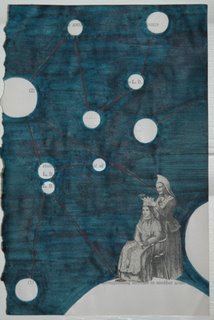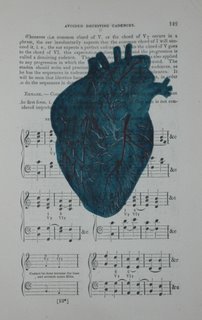numas then & now

Happy new year to all who adhere to the Gregorian calendar. Celebrating in January is a relatively recent tradition; the ancient Roman calendar consisted of only ten months with the year starting March 1st, which is why the Latin roots of November & December, the last months of the year in our modern method of timekeeping, mean ninth & tenth, respectively. Numa Pompilius, the second king of Rome, added the months of January & February around 700 B.C., & under Julius Caesar’s reign the new year moved from March to January. Many folks still celebrate in March, however: in Iran, norouz (“new day”) occurs at the moment of the vernal equinox & marks the beginning of twelve days of festivities—there is much visiting among families & friends, and of course a lot of food. Although norouz is a traditional Iranian holiday, it is also observed in many other countries, including India, Afghanistan, Iraq, Albania, Azerbaijan, Turkey, & Kazakhstan.
Being a Westerner, I went to a new year’s eve party December 31st, & found myself in a charmingly appointed house formerly owned by a sea captain. The guests sat talking in an intimate, lively circle, & welcomed a newcomer. Suddenly our host announced it was time for everyone to practice the numa numa dance; while I was trying to decipher this odd order she rushed over to her laptop & called up youtube—specifically a video in which a doughy white man has recorded himself lipsynching & gesticulating to a pop song. These forms of self-expression can be highly entertaining (even if vapid; & I did admire the large fellow’s eyebrow control); however, with much of our everyday lives inundated with various electronic input, the times we gather with friends should be an opportunity to put aside the gadgetry & do some old-fashioned listening. To learn more about these real human beings who are beside us during this temporary, precious life.

Needless to say, everyone but yr. correspondent enthusiastically obeyed the injunction to imitate the numa numa moves. On these occasions I always hope to convey my enjoyment while simultaneously holding firm to my conviction to not follow the crowd. A few days later it was gratifying to discover an article by anthropologist & essayist Roger Sandall on the subject of herd mentality (view the entire piece at http://www.culturecult.com/sandall_dec06.htm).
“I once attended an event at the Sydney Opera House where some 2500 people had gathered. A Danish percussion group were performing and they wanted the crowd to participate. Their leader stood and gave orders—clap, shout, stand, pat your knees—and 2500 men and women obeyed his commands. I myself declined to take part, but the elderly woman beside me, with shining eyes, followed every movement as though she had been waiting eighty years for instructions. She would have stood on her head if they asked.”
The audience behavior Sandall witnessed is far from uncommon: it happens at sporting events, where adult fans gladly pound out primitive rhythms on command or repeat simple, shouted phrases suitable for kindergartners; & it also occurs in corporate meetings, where it seems to take on more sinister overtones. So for this new year, consider stepping outside the herd sometime. But not because I told you so.



3 Comments:
...intresting....part of the herd!
inclinations to "be part of the herd" are as important to humanity as individualism. the primitive need to belong is the seed which sprouts actions to help one another, share joy, distress, in short, feel empathy. Indeed, forming a community spirit helps keeps the peace, at home and abroad, eh?
I completely agree about the advantages of communities; I mostly wanted to point out the wisdom & importance of making a conscious decision about when to join in group activities & when to refrain.
Post a Comment
<< Home